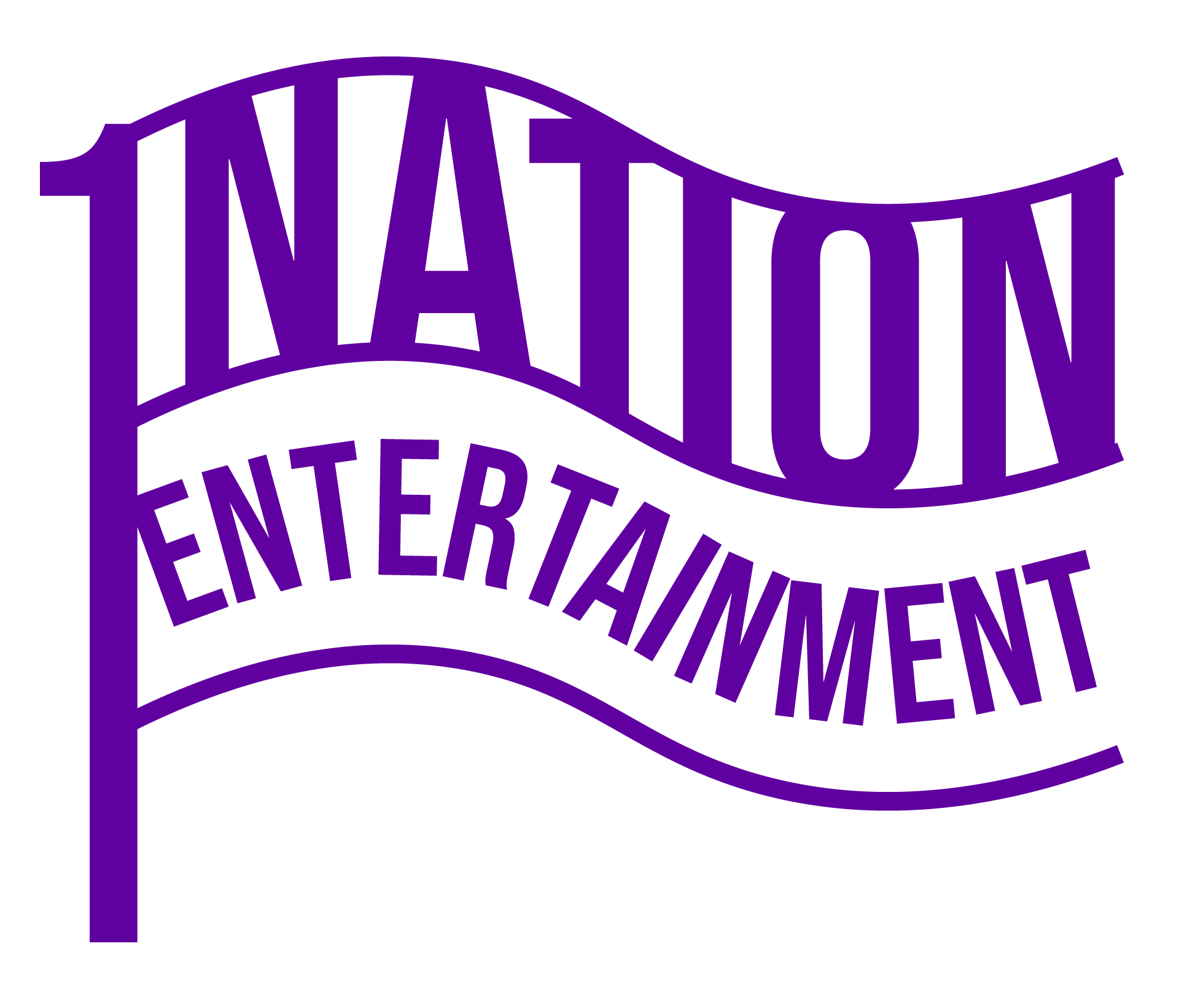In 2024, music continues to play a pivotal role in our daily lives, shaping culture, inspiring creativity, and bringing people together. Among the many ways to engage with music, music blogs remain an indispensable resource for music enthusiasts, offering unique perspectives, exclusive content, and a window into the ever-evolving music landscape. Whether you’re a musician seeking exposure or a fan eager to explore fresh sounds, music blogs provide a vibrant platform to connect with the music community and stay ahead of the curve in the dynamic world of 2024.

Are Music Blogs Still a Thing?
Music blogs have evolved significantly since their emergence in the mid-2000s, adapting to changes in the music industry and shifting consumer preferences. While their dominance has been overshadowed by platforms like social media and streaming services, music blogs continue to play a vital role in the music ecosystem.
The Evolution of Music Blogs
Music blogs originally served as a primary source for music discovery, artist interviews, and album reviews. Over time, they’ve had to compete with the rise of YouTube, SoundCloud, and Spotify, which now dominate the way music is consumed and shared. Despite this competition, music blogs remain a cherished resource for fans and artists alike.
Why Music Blogs Still Matter
- Artist Promotion : Many independent artists and smaller labels rely on music blogs to showcase their work and gain exposure. Bloggers often take the time to curate and promote unsigned talent, providing a platform for artists who might otherwise go unnoticed.
- Fan Engagement : Music blogs foster a sense of community among fans. Readers often engage with content through comments, shares, and social media interactions, creating a loyal audience for creators who invest in storytelling and analysis.
- Niche Communities : Music blogs allow for the exploration of subgenres and emerging trends that might not be covered by mainstream platforms. They cater to specific audiences interested in particular styles or scenes.
- Cultural Analysis : Music bloggers often provide insightful commentary on the cultural significance of music, offering deeper analysis than quick-hit social media posts. This adds value for readers looking for more than just tracks and videos.
1 Nation Entertainment: A Case Study
At 1 Nation Entertainment, we understand the importance of music blogs as a bridge between artists and fans. Our platform is dedicated to delivering high-quality content that covers the latest trends, interviews, and reviews in the music industry. We aim to provide our readers with a unique perspective on music culture, helping them discover new artists and stay connected to the music they love.
Conclusion
Music blogs may not be the dominant force they once were, but they remain an integral part of the music industry. They offer a blend of in-depth analysis, personal insight, and community engagement that continues to resonate with audiences. At 1 Nation Entertainment, we are committed to preserving this tradition and leveraging the power of music blogs to connect fans with the music they adore.
How to Find Music Blogs to Submit To
To effectively find music blogs that accept submissions, follow these organized steps:
- Online Directories and Search Engines :
- Utilize Google’s blog search feature by typing queries like “best music blogs” or “submit music blog.”
- Visit platforms like SubmitYourContent.com and BlogSubmissions.com, which offer directories of music blogs.
- Social Media Engagement :
- Explore Twitter and Instagram by following hashtags such as #MusicBlogs and #SubmitMusic.
- Join Facebook groups related to music blogging to connect with communities and discover submission opportunities.
- Forums and Online Communities :
- Participate in Reddit subreddits like r/MusicProduction and r/MusicIndustry for networking and recommendations.
- Engage in discussions to gain insights and find blogs accepting submissions.
- Direct Outreach :
- Use contact forms on blog websites to reach out with a polite and professional introduction.
- Attach a sample post or your blog’s URL to showcase your content.
- Targeted Content Submission :
- Tailor your pitch to match the blog’s audience, considering factors like genre preferences (e.g., electronic music blogs).
- Promotion and Networking :
- Share your blog on platforms like Medium and LinkedIn to attract interested readers.
- Attend local music events or conferences to network with other bloggers and explore collaboration opportunities.
- Organizational Tracking :
- Maintain a spreadsheet or list of submitted blogs for easy tracking and follow-up.
By combining these methods, you can efficiently identify and submit to music blogs, enhancing your blog’s visibility and potential acceptance.

Do Music Blogs Make Money?
Yes, music blogs can generate revenue through various strategies. Here’s a breakdown of how they make money:
Monetization Strategies
- Affiliate Marketing : Promote products or services related to music, such as instruments, albums, or tickets, and earn a commission for each sale made through your blog.
- Sponsored Posts : Partner with brands or companies in the music industry to share their products or services in exchange for payment. This could include gear reviews, album promotions, or artist spotlights.
- Merchandise Sales : Create and sell music-related merchandise, such as t-shirts, hats, or posters, often through partnerships with artists or labels.
- Ad Revenue : Display advertisements on your blog through platforms like Google AdSense or specialized music advertising networks.
- Sponsorships : Secure sponsorships from music-related businesses to cover hosting costs or generate income.
Additional Revenue Streams
- Guest Posting : Write guest posts for other music blogs or platforms in exchange for exposure and sometimes compensation.
- Brand Collaborations : Work with music brands or labels to promote their products or services on your blog.
- Ticket Sales : Partner with event promoters or venues to sell concert tickets through your blog.
- Crowdfunding : Engage with fans through platforms like Patreon or Bandcamp to fund your blog projects and gain exclusive content for supporters.
Conclusion
Music blogs offer multiple avenues for monetization, ranging from affiliate marketing and sponsored content to merchandise sales and ad revenue. By strategically leveraging these methods, bloggers can turn their passion for music into a profitable venture.

Earmilk: A Comprehensive Evaluation
Earmilk is a standout blog known for its high-quality content, engaging writing style, and consistent delivery. Below is an analysis of its strengths and overall effectiveness as a blogging platform.
Content Quality
- Depth and Relevance: Earmilk’s articles are well-researched and cover a wide range of topics, ensuring they resonate with diverse audiences. Whether it’s entertainment news, lifestyle tips, or industry insights, the content is always thought-provoking and informative.
- Originality: The blog consistently produces original content, avoiding copied material and ensuring each piece adds value to the reader.
- Coverage: Earmilk covers trending subjects extensively, making it a go-to source for staying updated on the latest developments in various fields.
Engagement and Interaction
- Community-Building Efforts: The blog actively engages with its audience through comment sections, social media interactions, and occasional polls or surveys, fostering a sense of community.
- Call-to-Action Strategies: Earmilk uses effective CTAs to encourage user interaction, such as inviting readers to share their thoughts or join discussions.
Design and Usability
- Clean and Professional Layout: The blog has a clean, user-friendly interface that enhances readability and navigation.
- Responsive Design: Earmilk ensures its content is accessible on all devices, including mobile phones and tablets, thanks to its responsive design.
- Visual Appeal: While primarily text-based, the use of high-quality images and infographics makes the content visually appealing and easier to digest.
Consistency and Reliability
- Regular Updates: Earmilk maintains a regular posting schedule, ensuring fresh content is available for readers to enjoy.
- Trustworthy Source: The blog operates with a commitment to accuracy and fairness, making it a reliable source of information.
Pros and Cons
- Pros:
- High-quality, engaging content
- Strong community engagement
- Clean and responsive design
- Regular updates and reliability
- Cons:
- Some articles may feel slightly promotional in tone
- Could benefit from more multimedia content
Conclusion
Earmilk is an excellent blog for anyone seeking well-crafted, informative content across various niches. Its focus on quality, engagement, and design makes it a valuable resource for readers looking to stay informed and entertained. We highly recommend exploring Earmilk for its unique blend of insightful articles and interactive features.
The World’s Most Successful Blog
The title of the “most successful blog” is subjective and depends on various factors such as traffic volume, revenue generation, brand influence, and global reach. However, one blog stands out as a clear leader in the blogging world due to its massive scale, revenue streams, and impact on digital media.
HuffPost (Huffington Post)
One of the most widely recognized names in blogging, HuffPost, has become a powerhouse in the digital media landscape. Known for its vast array of content categories, HuffPost attracts millions of daily visitors worldwide. Its success lies in its ability to cover nearly every conceivable topic under the sun, from politics and celebrity news to lifestyle, health, and technology. HuffPost generates significant revenue through sponsored advertising, display ads, and affiliate marketing programs. As of recent estimates, HuffPost is valued at over $1 billion, making it one of the most lucrative properties in the blogging world.
Other Notable Blogs
While HuffPost leads the pack, several other blogs have carved out niches and achieved remarkable success:
- BuzzFeed : Known for its viral content and listicles, BuzzFeed has grown into a global media empire. It combines humor, pop culture, and breaking news to engage its audience effectively. The platform has expanded beyond blogging into video content, podcasts, and merchandise, further solidifying its success.
- Refinery29 : Specializing in lifestyle, beauty, and fashion content, Refinery29 has built a loyal audience among young women. Its mix of high-quality journalism and engaging storytelling has made it a go-to destination for millions of readers.
- Business Insider : Focusing on finance, tech, and business news, Business Insider has become a trusted source for professionals and casual readers alike. Its blend of in-depth analysis and accessible reporting has contributed to its rapid growth and widespread recognition.
1 Nation Entertainment’s Approach
When considering the most successful blogs, it’s also important to evaluate how content is produced and consumed. Platforms like 1 Nation Entertainment focus on creating high-quality, engaging content that resonates with their audience. By staying ahead of trends and delivering fresh perspectives, these platforms continue to attract and retain loyal followers.
Key Factors for Success
The success of a blog often hinges on several key factors:
- Content Quality : Consistently producing well-researched, engaging, and thought-provoking content is essential for building trust and loyalty among readers.
- Audience Engagement : Interacting with readers through comments, polls, and social media helps foster a sense of community and keeps users returning for more.
- Monetization Strategies : Effective monetization methods, such as display ads, sponsorships, and affiliate marketing, play a crucial role in sustaining and growing a blog’s operations.
- Brand Influence : A strong brand identity helps establish credibility and attracts advertisers looking to reach a targeted audience.
By combining these elements, the world’s most successful blogs have managed to not only thrive but also shape the digital media landscape as we know it today.

Best Platforms to Submit Your Music
When it comes to sharing your music with the world, there are several platforms that cater to different audiences and goals. Here’s a breakdown of the top options:
- Spotify : A leading global music streaming platform, Spotify allows artists to submit their music via their artist portal. This is ideal for reaching a broad audience and accessing features like playlists and trending charts.
- Apple Music : As part of Apple’s ecosystem, artists can submit their music directly to Apple Music. This platform has a significant presence in many countries and offers opportunities for monetization.
- YouTube Music : While primarily a video platform, YouTube Music allows artists to upload their tracks and integrate them into videos. This is perfect for those looking to combine audio and visual content.
- SoundCloud : Known for its community-driven approach, SoundCloud is a favorite among independent artists. It offers tools for uploading music and connecting with fans.
- Bandcamp : Ideal for independent artists, Bandcamp provides a platform to sell music directly to fans. It also offers robust analytics and customization options.
- TuneCore : This service simplifies music distribution by uploading tracks to multiple platforms like Spotify, Apple Music, and Amazon Music all at once.
- Submithub : A unique platform that connects artists with record labels, promoters, and other industry professionals, Submithub helps artists get discovered and distributed.
To maximize your success, consider these tips:
- Choose the Right Platform : Select based on your goals, whether it’s global reach, direct fan engagement, or monetization.
- Optimize Your Profile : Create a professional profile with high-quality artwork and bio information to make a lasting impression.
- Engage with Fans : Use social media and platforms to promote your music and build a loyal audience.
Conclusion
Submitting your music requires careful selection of the right platform and strategic promotion. By leveraging platforms like Spotify, Apple Music, SoundCloud, and others, you can effectively share your music and connect with your target audience. Remember to optimize your profiles, engage with fans, and stay consistent in your efforts.




